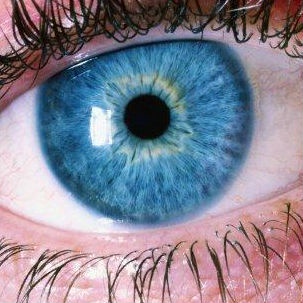An award-winning University of Aberdeen spin out company has received £1.4M to fund research that will see them validate the use of eye movement abnormalities in diagnosing major psychiatric disorders.
Saccade Diagnostics Ltd (SDx) received the award from the Department of Health and Wellcome Trust through their joint Health innovation Challenge Fund scheme and will carry out the research in collaboration with teams from the Universities of Aberdeen and of Edinburgh.
Although eye movement abnormalities have been known to be present in people with psychiatric disorders for over a hundred years, they have not been thought to be sensitive or specific enough to be clinically useful.
Unlike other branches of medicine there are currently no objective tests to help with the diagnosis of psychiatric disorders such as schizophrenia, bipolar disorder and recurrent depression. Diagnosis is based solely on patient history, symptoms and observed behaviour. This means that diagnoses are often unreliable and patients may not get the best and most appropriate treatment.
However, new findings from Dr Philip Benson, a senior academic psychologist and eye movement expert, and Professor David St Clair, a practicing clinical academic psychiatrist from the University, show that a range of tests based on simple eye movement recordings taken by a fast camera as you watch pictures is extremely effective at diagnosing a range of major psychiatric disorders.
Eye movement performance measures, including the ultra-rapid “saccades” that take place several times a second, are analysed by special computer algorithms to generate different patterns. The eye movement technology performs better at distinguishing different psychiatric disorders than any current blood, radiology or gene based tests of which they are aware.
The new funding will allow the team to replicate their exciting findings on large new sets of patients with schizophrenia, bipolar disorder and recurrent depression. They will also test patients with a range of other psychiatric disorders such as borderline personality and obsessive compulsive disorders as well as large numbers of diagnostically challenging cases and normal controls.
The investigators can then explore how robust their findings are against a range of psychiatric disorders; critically they will also be able to generate software containing a constantly expanding master psychiatric eye movement reference database against which data from new patients can be compared.
Saccade Diagnostics will play a key role in taking the technology through the many stages including product development, regulatory approval and field trials before the eye testing technology can be made available commercially for use in routine clinical practice.
Mr Madhu Nair CEO and co-founder of SDx along with Professor St Clair and Dr Benson, said: “This is a tremendous endorsement of our company and the work we are doing from the world’s biggest medical research charity.
“The technology should improve patient wellbeing, satisfy an enormous unmet need and reduce health care costs worldwide.”
Professor St Clair added: “It is extremely exciting that Aberdeen and Edinburgh are working so closely together on this project. I am delighted that all the feedback we have had from colleagues and patients alike has been so positive.”
Dr Benson commented: “Many challenges lie ahead translating our research findings into a technology that can be used clinically. I am thrilled to be playing such a key role in its development. It is rare in medicine for an individual to have the opportunity to take a discovery all the way through from bench to clinic.”
Professor Phil Hannaford, VP Research and Knowledge Exchange said: “Saccade's success is another important milestone for the company as it progresses towards commercial viability. It also demonstrates again the University's strong track record of developing the business potential of its excellent research base.”
Professor St Clair, and Dr Benson are the principal investigators on the eye movement programme based in Aberdeen, along with Professor Andrew McIntosh who is leading the team in Edinburgh.


